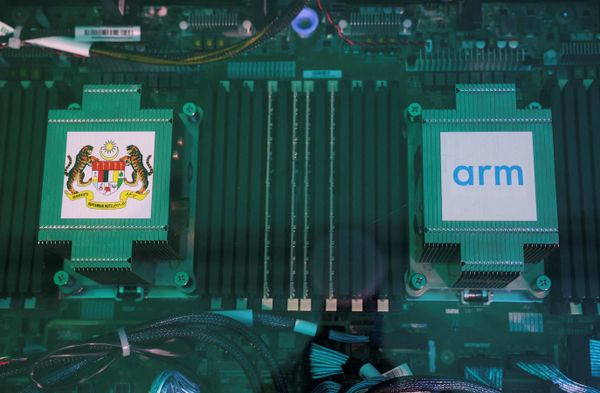By Danial Dzulkifly
KUALA LUMPUR, March 5 — Prime Minister Datuk Seri Anwar Ibrahim today hailed Malaysia’s collaboration with global semiconductor giant Arm Holdings Plc (ARM) as a turning point for the nation’s ambitions in high-value chip design and artificial intelligence (AI) development, calling it the start of a “second semiconductor wave” and even a “revolution.”
Speaking at the signing ceremony at the Shangri-La Hotel, Anwar said the partnership aligns with the National Semiconductor Strategy, which aims to position Malaysia beyond a production hub and into a leader in integrated circuit (IC) design, semiconductor manufacturing, and advanced packaging.
“This marks a fundamental shift in our approach to semiconductors and technology that will define our future,” he said.
Anwar said a key aspect of the partnership is the plan to pioneer “Made in Malaysia” AI chips, designed, manufactured, tested, and assembled locally before being exported worldwide.
“This is one of the most ambitious technological plans Malaysia has ever seen,” Anwar said, adding that the government is fully committed to ensuring its success.
He also revealed ARM will establish its first Asean office in Kuala Lumpur to expand its outreach across the region, including Australia and New Zealand.
He credited the collaboration between key ministries including the Investment, Trade and Industry Ministry, the Economy Ministry, and the Finance Ministry, for securing the deal.
“I alluded to this issue earlier, instructing all relevant agencies in both the public and private sectors. Our academic institutions and universities must focus on and initiate this programme immediately.
“I believe the various ministers should receive monthly reports on the plan, in collaboration with ARM and the industries,’’ he said.
Meanwhile, Economy Minister Rafizi Ramli, who also spoke at the event, said the collaboration, which emerged from discussions at the KL20 tech conference last year, will see Malaysia transition from traditional semiconductor backend operations to high-value IC design, which captures over 60 per cent of the supply chain value.
“We needed a deeper, more substantive partnership that aligns with the Prime Minister’s technology mission. This is not just about catching up or a technology upgrade, but making a technological leap,” he said in his speech.
Under the deal, Malaysia and ARM will develop complex IC design companies using ARM’s intellectual property, nurture 10,000 skilled talents, and focus on cutting-edge applications such as AI data centres, robotics, and the Internet of Things.
The 10-year agreement, valued at RM1.1 billion, aims to push Malaysia beyond its traditional role in chip assembly and testing, enabling local companies to design and develop their own semiconductors to compete in the global market.
Rafizi said the initiative is designed to benefit local players by prioritising domestic firms in the supply chain while incorporating technology transfer and localisation requirements.
Also present at the signing ceremony were Investment, Trade and Industry Minister Tengku Datuk Seri Zafrul Abdul Aziz and ARM chief executive Rene Haas, among other government officials and key players in the semiconductor industry.


